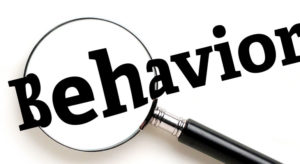Abstract

Many loved ones become addicted to drugs and when it is to Opioids its called OUD or opioid use disorder. It is an actual disease of the brain caused by chemical brain damage. The symptoms come on slowly and all involved can be unaware of what is happening until the symptoms become onerous. There are some typical behaviors displayed by OUD patients that should be noted if you are worried about the loved one being addicted to Opiates. Although many of these symptoms are shown by people addicted to other drugs, this article is primarily about Opioid Addiction or OUD.
Some people get addicted to Opioids by using them initially recreationally but the vast majority start with legitimate pain control needs. Some people really need the pain control and become addicted as a result. This is called OUD or Opioid use disorder. Some people initially need pain control but even after the pain has subsided they continue to use the Opioid because they like how it makes them feel. This is Addiction but also OUD. Even though the origination of OUD in certain patients is recreational or could have been avoided, its still a disease and is treated the same way for the most part. The “Addicted patient” who really likes the high, is harder to treat than the OUD patient who doesn’t care about the high.
There are certain personality traits that seem to be common in many OUD patients. Recognizing these traits can help us design a treatment plan that is in tune with the patients unique needs which greatly increases positive outcomes. Some of those personality traits are as follows;
- Introversion
- More than average Sensitivity to their environment
- More than average Sensitivity to their emotional feelings
- More than average Sensitivity to physical discomfort
- Highly Creative
- Overwhelmed by stressors i.e. Financial, Family, Work, Relationships Health
- Has had a history of trauma i.e. PTSD, Emotional, Physical, Sexual
- Lack of social connectedness i.e. Not very social and has few friends
- Does not have someone to talk to that they admire, trust and who can give support

Due to some of these traits, certain behavior patterns emerge that are typical and common in the OUD patient. These symptoms or patterns start very slowly but then grow in severity and frequency as the patient moves further and further into addiction. This is because they begin to recognize that their behaviors are outside of the norm and they need to keep the realization that they are addicted secret otherwise friends and loved ones might recognize the problem and not support them anymore with things like emotional support or the lending of money.
As the disease progresses the patient will necessarily become more secretive, they will become better and better at manipulating people, family, and friends. They become very good at lying even when they do not need to. They will become more and more withdrawn and their sphere of contact with other people will shrink due to their change in personality or run-ins with un-repaid borrowing or out right theft.
The OUD patient typically will anger very quickly if accused of anything remotely related to their addiction or their behaviors and be extremely defensive and even aggressive. If conversations arise about their addiction, drugs or their behavior due to those things they will deny and attack the critic. They will typically become more and more withdrawn and they will start to lose friends.
As the disease progresses further, we start to see that the patient will frequently forget about their responsibilities and be late or absent from things that they should be doing, often with very poor reasons. They may lose their job for reasons that they say have nothing to do with them or their performance, “not their fault”. They may report all kinds of pains or illnesses frequently and are constantly seeking medication or a new doctor who understands them. They may already be on disability or are wanting to go on disability due to a very difficult to diagnose illness usually involving pain and pain medication. However the disability does not seem always to be apparent and at times the patient can function normally when they do not feel they’re being watched.
At this point they and the people around them pretty much know that something is wrong. The loved one tends to be oversleeping a lot and staying up late are miserable when they wake up, usually due to withdrawal.
The loved one becomes very impulsive, is almost always broke, and little bits of money or items from home tend to go missing.
Other telltale signs are that their voice begins to change and becomes rough and gravelly. They may sniffle a lot, they may have tracks on their arms, legs, feet or neck and their pupils can be extremely dilated when they are in need of their drug and very pinpoint when they are using their drug.
Drug paraphernalia and leftover items maybe he found such as little bits of tinfoil, tiny little baggies, tiny little balloons, bent and or burned spoons and glass tubes that look cooked or burnt on one end.
Drug use confirmation is easy with a urine test but many times a loved one will be offended and will deny drug abuse and not want to get help. At this point the loved one needs to remain supportive but highly vigilant about the patients responsibilities and inappropriate behavior and allow consequences to help shape the patients experience and recognition of their problem.
At Brightside you can find answers to your questions informally by calling or formally by seeing one of their therapists who are extremely experienced in addiction.
www.brightsideclinic.com 224-205-7866
